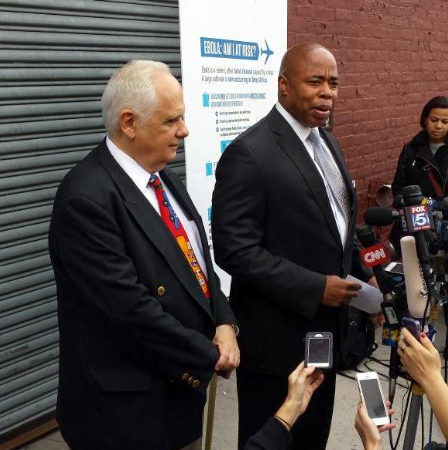Officials: Travelers from West Africa to be screened for Ebola after arriving in NYC
After diagnosis of Dr. Craig Spencer, Williamsburg bowling alley allowed to reopen

New York City Mayor Bill de Blasio and health officials said at a press conference in Brooklyn on Friday the CDC had updated screening protocols for travelers to New York City from Ebola-stricken countries in West Africa, following the diagnosis of Dr. Craig Spencer at Bellevue Hospital this past Thursday.
“Our health department will directly monitor them,” de Blasio said.
________________________________
